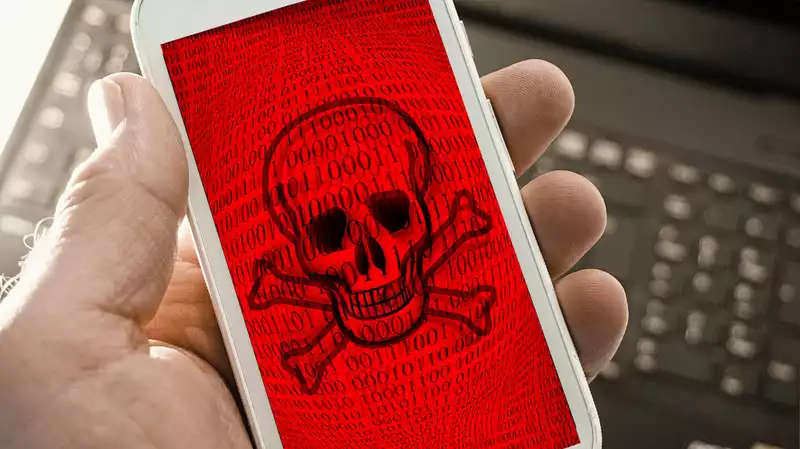Smartphones are probably the most used gadgets we own these days, allowing us to browse the web, send emails, and keep in touch with friends. Modern smartphones have many built-in protections, but just like any other device we use to access the Internet, we want to make sure we are fully protected.
This is especially true if you have banking applications or other applications containing sensitive information installed on your smartphone. You want to make sure that your device is fully protected, especially if it is lost or stolen.
This guide will give you some tips on how to protect your smartphone. One of your first port of call is to check out Bitdefender Total Security. Not only does it offer advanced antivirus protection for your Windows PC or Mac, but thanks to a dedicated app you can protect your iPhone or Android smartphone as well. Bitdefender Total Security can be installed on five devices, so you don't have to pay for multiple licenses.
This may seem obvious, but many people still do not add passwords or PINs to their phones. If they don't add them, if their device is lost or stolen, anyone can gain full access to their phone, including apps, accounts, and even stored credit and debit cards.
Therefore, be sure to lock your phone with a password or PIN. The latter is preferable because it can be entered quickly and is more secure. Just choose a password or PIN that is easy to remember and do not use one that is easy to guess, such as 1234.
Bitdefender Total Security offers another level of security for Android devices with App Lock. It allows you to lock any app with a PIN code, so even if a thief breaks into your phone, they cannot access your most important apps.
You should always make sure that your phone is downloading the latest updates. Not only do they add new features, improve performance, and fix bugs, but they also include important security updates to protect your smartphone from the latest viruses and malware.
Your smartphone should alert you when new updates are available for download. While it may be tempting to delay or ignore the update, it is really important to download it. You can usually do this by clicking "Update" in the message that appears, but you should also be able to find it in your phone's "Settings" app.
It is also important to keep the app updated for the same reason. You can usually do this by opening the Google Play Store or the App Store, which will highlight apps that have updates ready to be downloaded and installed.
You can also make sure you are fully protected with Bitdefender Total Security. You can also set it to automatically scan apps every time you download them, and it will warn you if there are any dangerous apps.
On the iPhone, Bitdefender Total Security scans your phone and data, identifying security settings that could put you at risk and helping you get the most out of Apple's built-in security tools.
One of the most common uses of smartphones is browsing the Internet.
Bitdefender Total Security offers the Bitdefender Web Protection tool, which filters out dangerous sites, and an anti-phishing system that scans web pages and alerts you when you come across a fraudulent page.
Finding a free Wi-Fi hotspot can be convenient when you are on the go, low on data and want to check e-mail. But while it may be tempting to connect to an open Wi-Fi network, think again.
Unfortunately, some malicious users broadcast "free" Wi-Fi, but when you connect, you are inadvertently allowing them access to your online data. Even if you connect to a legitimate free Wi-Fi hotspot, you never know what security measures the provider has in place. For example, you don't want your data to be accessed or seen when using online banking.
For this reason, stick to cellular data transmission if you can. If you must use Wi-Fi, Bitdefender Total Security gives you access to Bitdefender VPN. This means your Internet data is encrypted, keeping your data safe even on dangerous networks, and with 200 MB of data per day, it's perfect for connecting to the Internet via a Wi-Fi hotspot and doing a little work.
Losing or having your smartphone stolen is a nightmare situation, but even if you have no hope of getting it back, there are at least a few things you can do to keep your personal data safe.
You can remote wipe your smartphone, sending a command and as soon as the phone is connected to the Internet, all data is erased from the device. This won't help you get your phone back, but at least it means that no one can access your apps, photos, data, etc.
Remember, this will delete everything from your phone, including photos, videos, etc. Therefore, always back up your phone and its contents on a regular basis. Back up to a local PC or use a cloud storage service like iCloud or Google Drive. That way, if your phone is stolen or lost, all your important data will still be with you.
Apple allows you to remote wipe your iPhone through iCloud.com or the "Find My" service.
For Android devices, Bitdefender Total Security comes with an anti-theft tool that can remotely locate, lock, wipe, or send a message to your device if it is lost or stolen .
It can also use the phone's camera to take pictures of anyone trying to open the phone and upload them to your Bitdefender Central account.
For the latest threat news, you can also visit the Bitdefender Blog (opens in new tab) for real-time updates on malware outbreaks and scams.
.









Comments